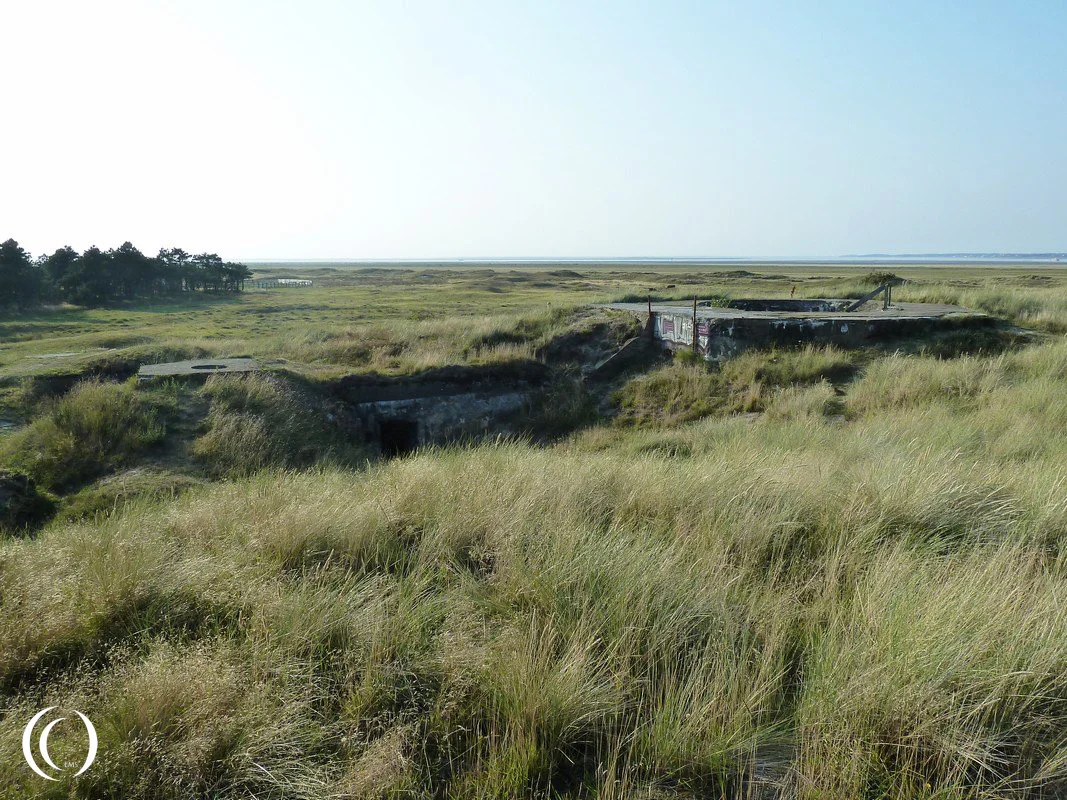
History
On the north tip of the island Fanø west of Esbjerg in Denmark lie multiple defensive positions. There are infantry positions, coastal batteries and anti-aircraft batteries. One of them is the Fanø Nord Flak Batterie controlled by the German Kriegsmarine.
The gun batteries protected the city of Esbjerg, its harbor and its Luftwaffe Fliegerhorst Esbjerg (Eng. air base). Esbjerg itself had three Flak batteries in its vicinity, at Gjesing, Gammelby and Femhøle. On the northside of Fanø island there were two Flak Batteries, Odden and Nord.
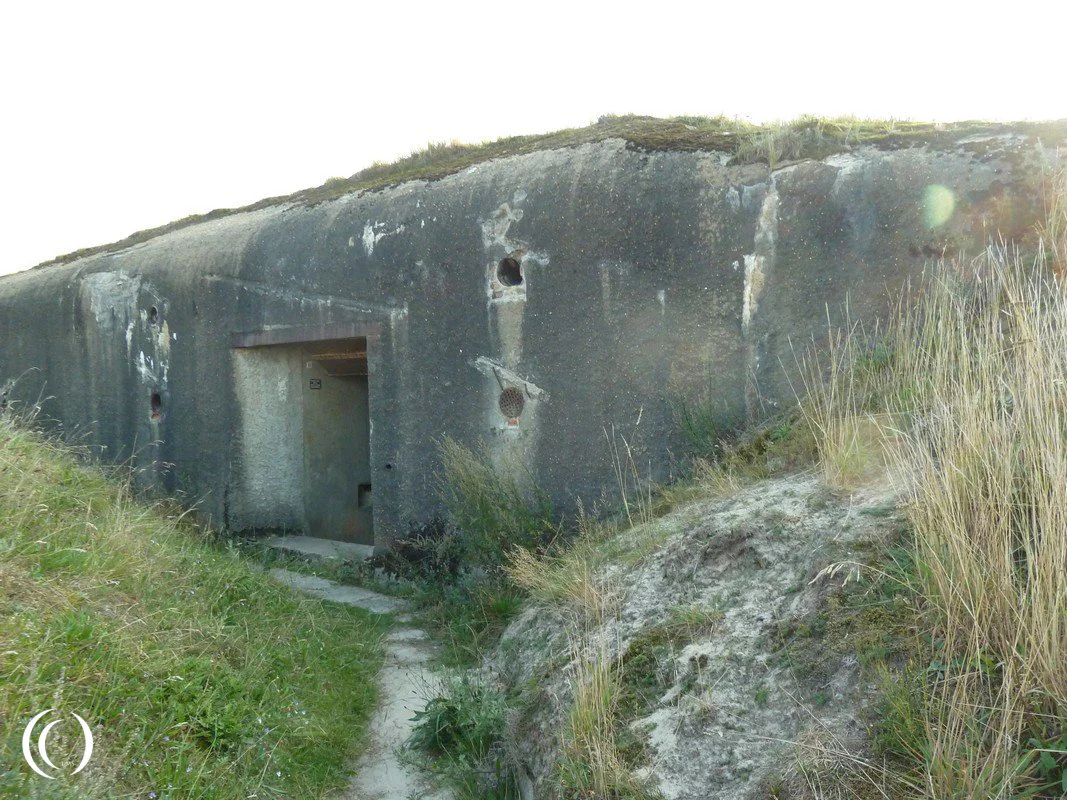

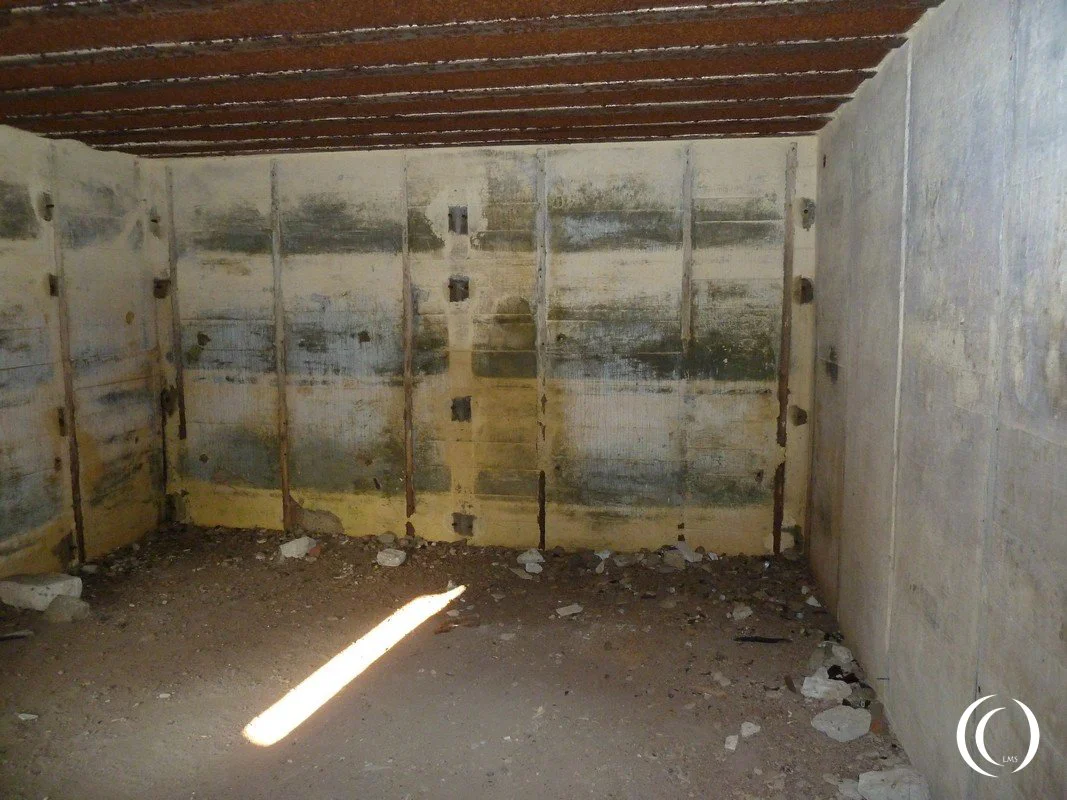
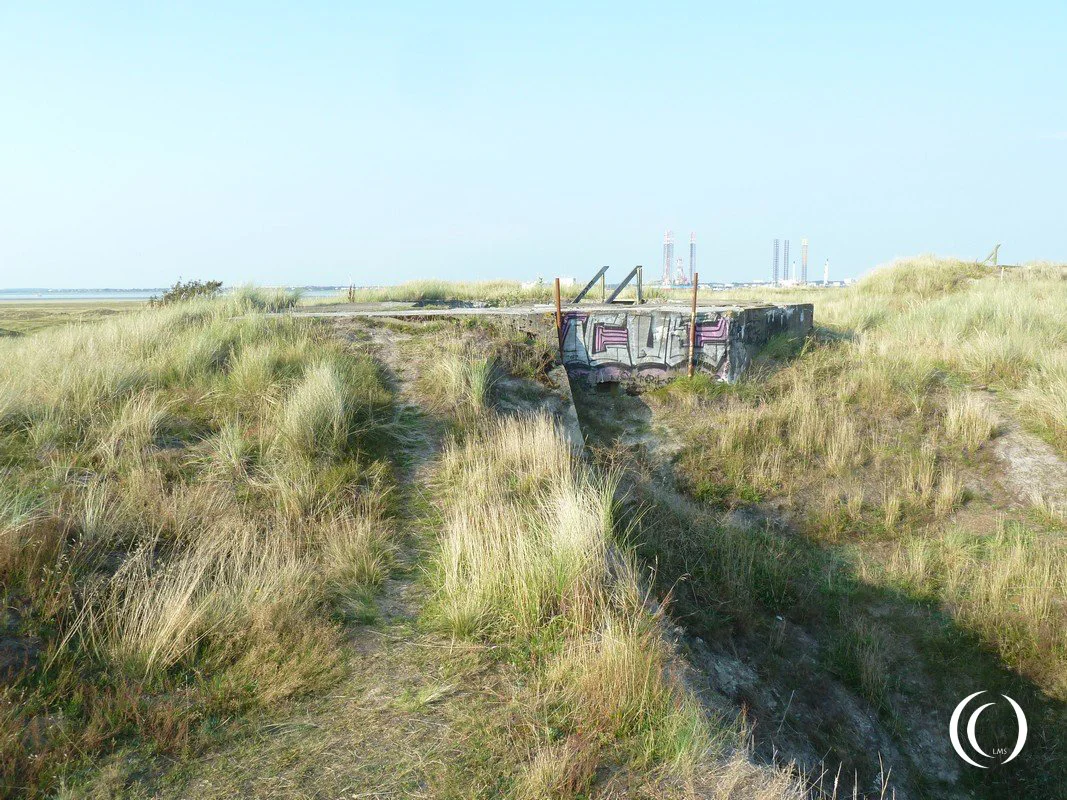
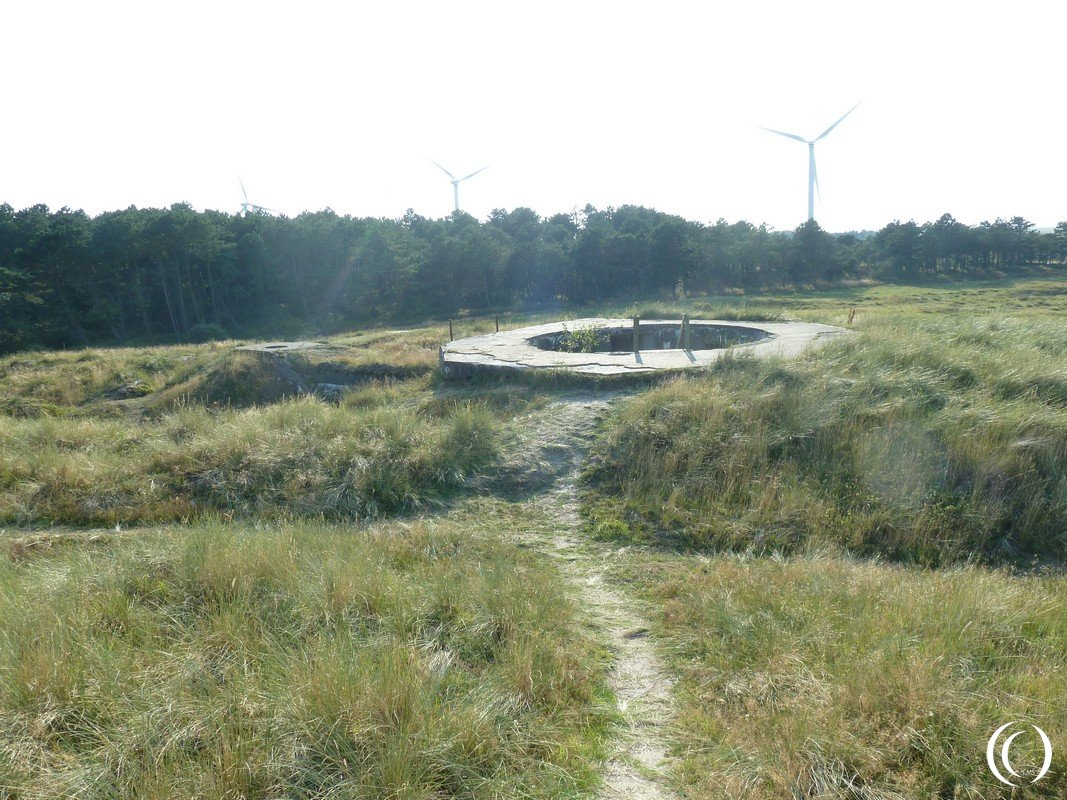
After invading Denmark, Germany defended the port and airport of Esbjerg. At first in open gun emplacements, from 1941-1942 they started constructing concrete bunkers for protection on Fanø.
Flakbatterie Fanø Nord
Marine Flakbatterie 3./204 or M.Fl.B. 3./204 Nord had four 10,5 cm Flak 38 anti-aircraft guns positioned in Regelbau Fl 234 flak bunkers. The Fl 234 is a Schwere Falkstellung (Eng. Heavy anti-aircraft position) built from 647 cubic meters of reinforced concrete. It is 19,50 x 19,60 meters and 6,3 meter high. On top is an open gun position with poured ammunition boxes. It was designed in 1942.


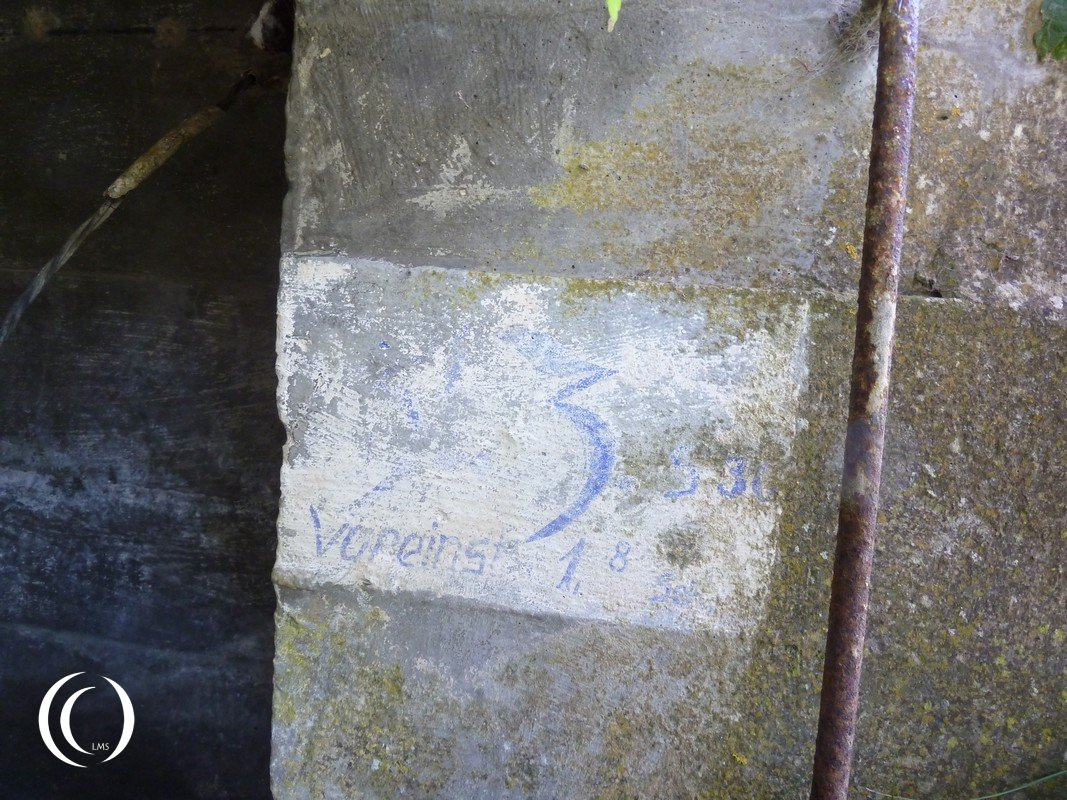
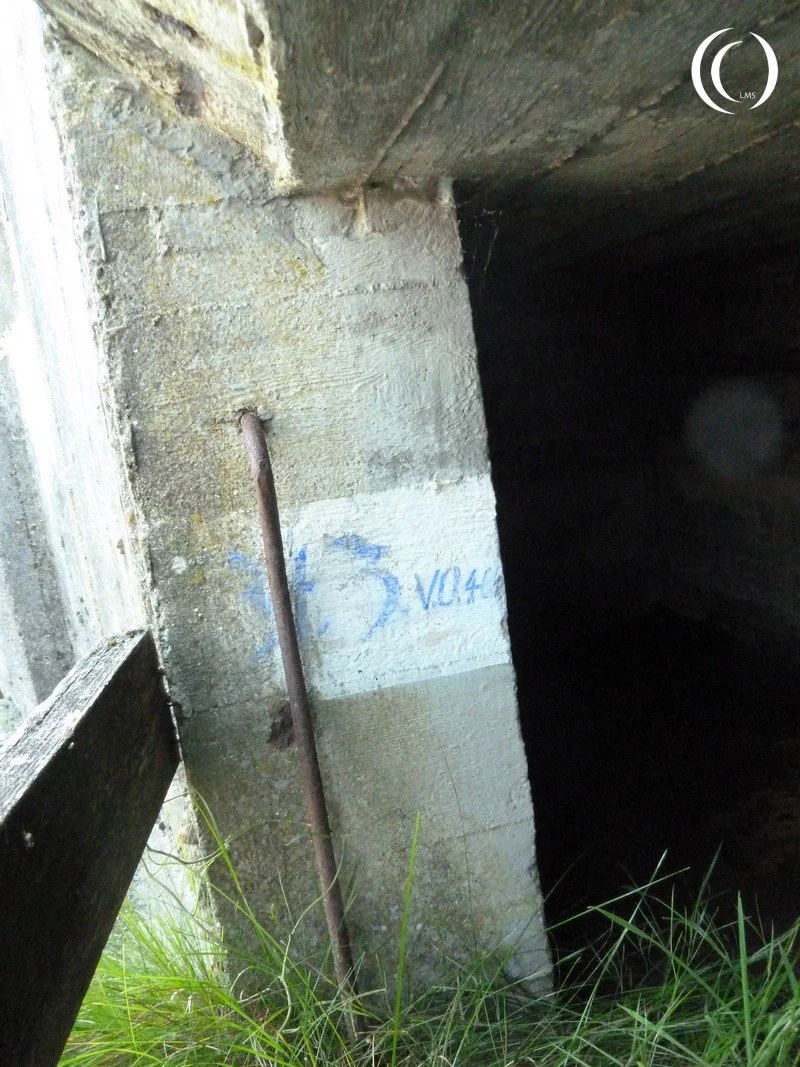

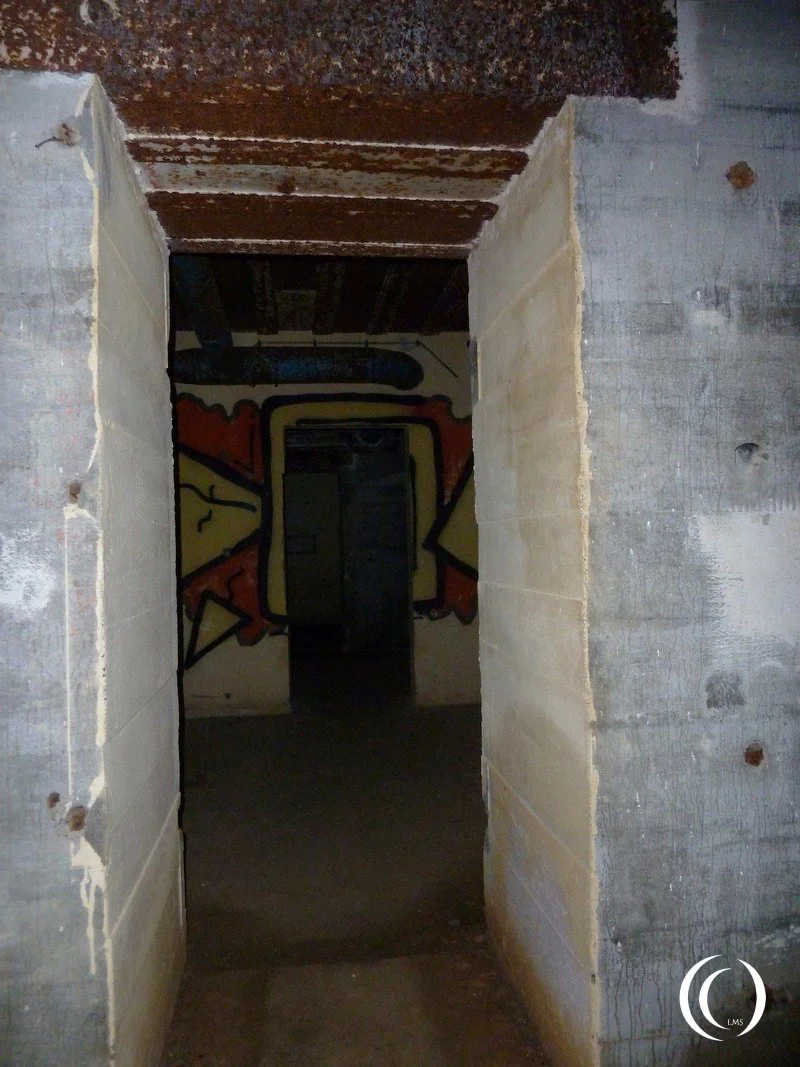
Next to the four Fl 234 Regelbau flak bunkers there was a Fl 244 Schwere Flak leitstand (Eng. Heavy fire control bunker) with a 6 m stereoscopic rangefinder and as there was a Würzburg D radar in the dunes nearby. (some sources, especially from Scandinavia refer to “Würzburg Dora” for the Würzburg D). Other Regelbau bunkers on the Flakbatterie were two Ammunition bunkers Fl 246 for 1200 shells each, one Regelbau Fl 245 machine room, one R621 Gruppenstand for 10 men and one R 622 Gruppenstand for twenty men. One Regelbau R 638 Sanitätsunterstand (sanitary bunker), three Ringstands für Schweren Granatenwerfer (Eng. Tobruk for heavy mortar) and a VF understand, a bunker for 6 men and a kitchen.
The gun positions, ammunitions storage and other bunkers were connected with trenches. These gave protection to crews when they resupplied the guns or whatever movement was necessary at the time.


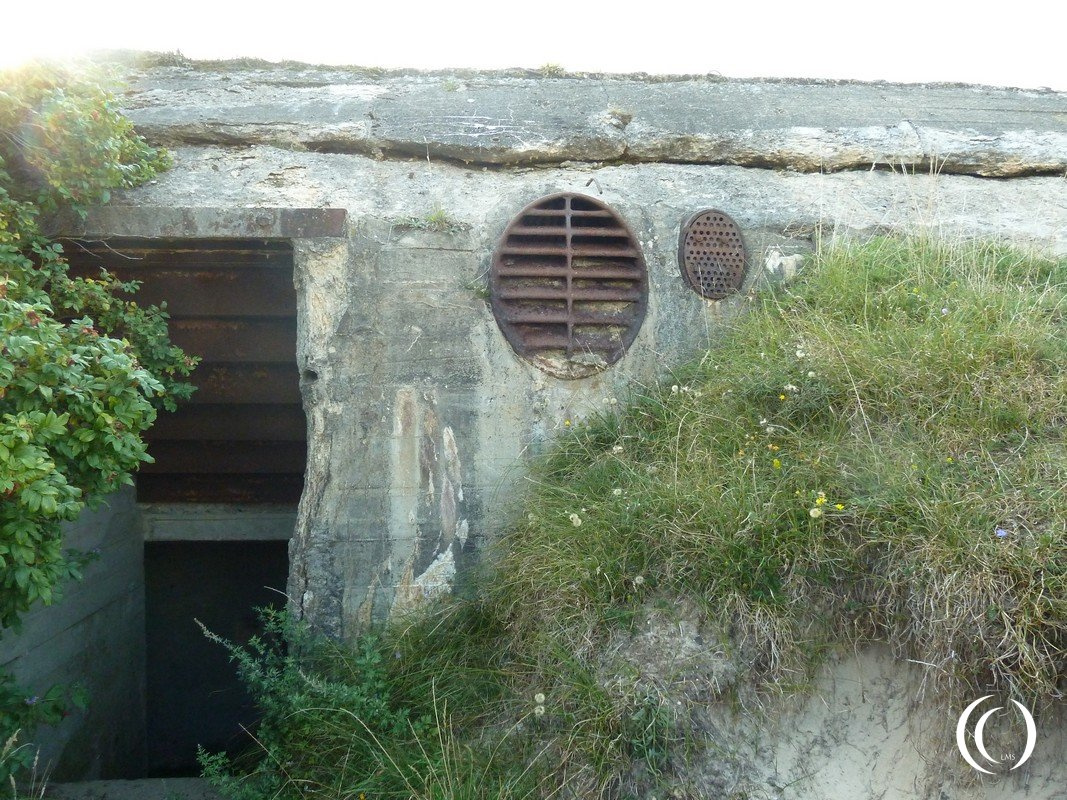

The anti-aircraft weapons
The 10,5 Flak 38 guns made by Rheinmetall. The gun was modern back then with an automatic loading system, a trained crew of 10 men could fire 12-15 rounds a minute. It had an effective firing range against ground targets at 17600 meters and an effective ceiling height of 9450 meters, a maximum height of 11400 meters.
Although Denmark wasn’t invaded from the sea it was subject to the allied air force crossing Denmark with heavy bomber and fighter formations on route towards their objectives in Germany or elsewhere. The story goes that the Flak battery shelled so hard that nearby residential barracks collapsed from the tremors.

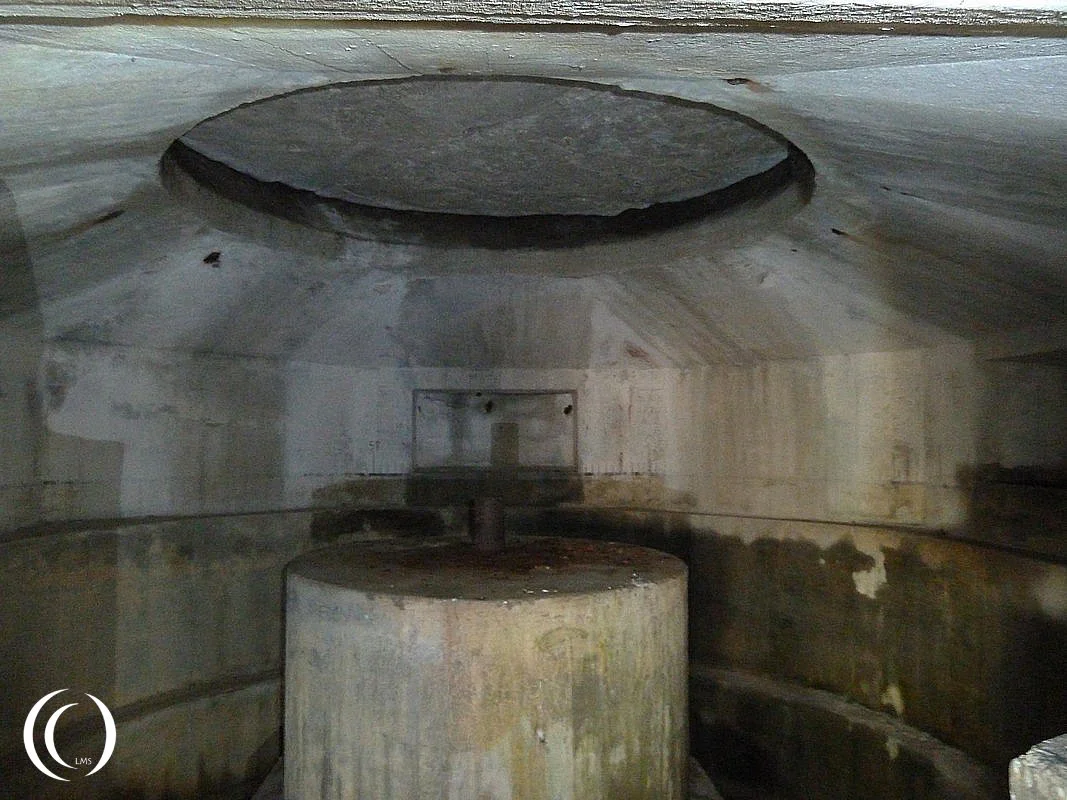
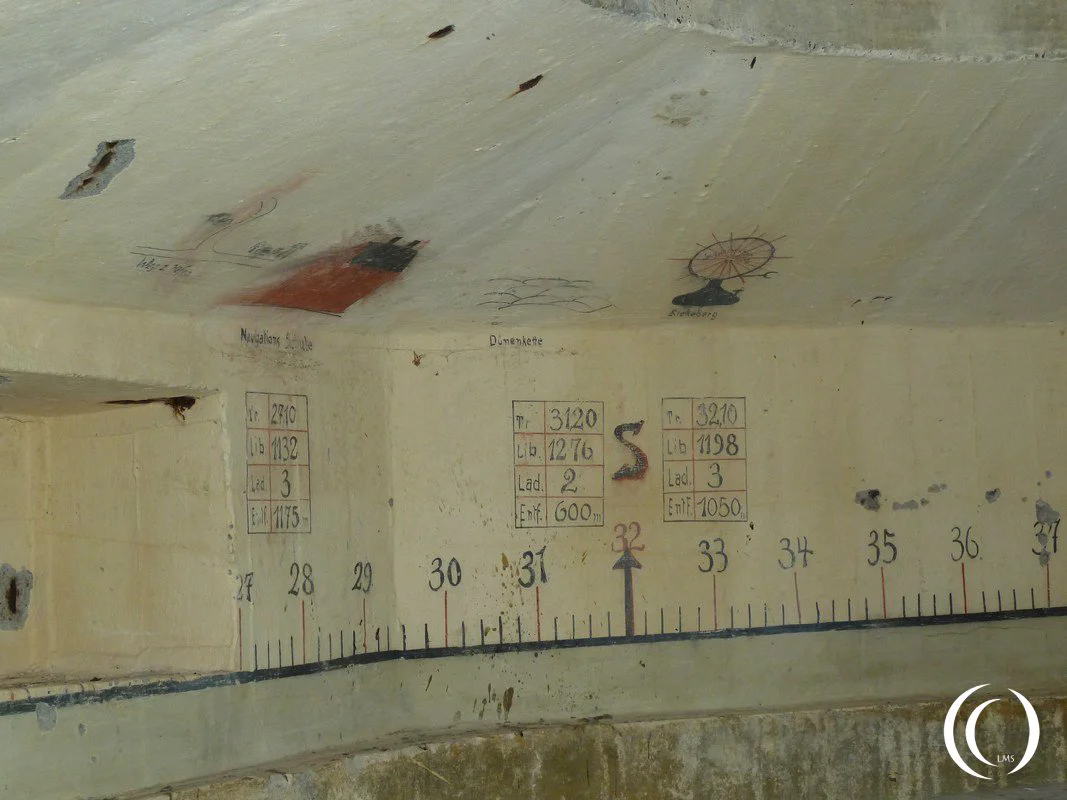

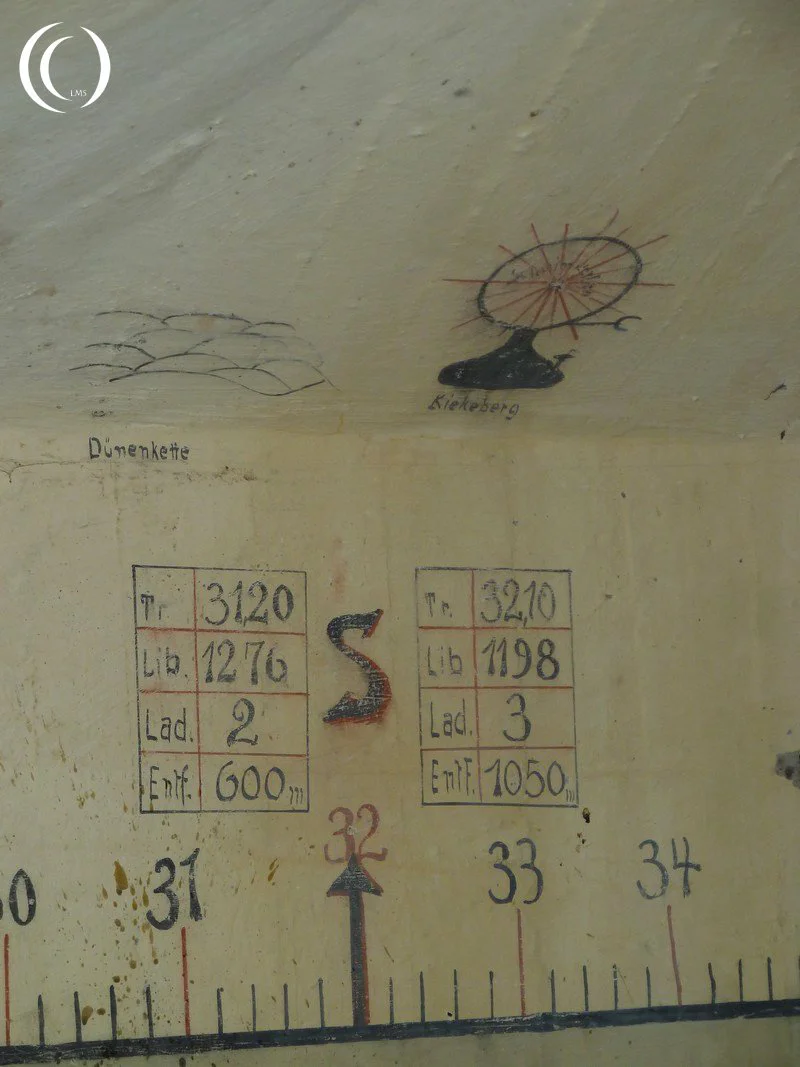

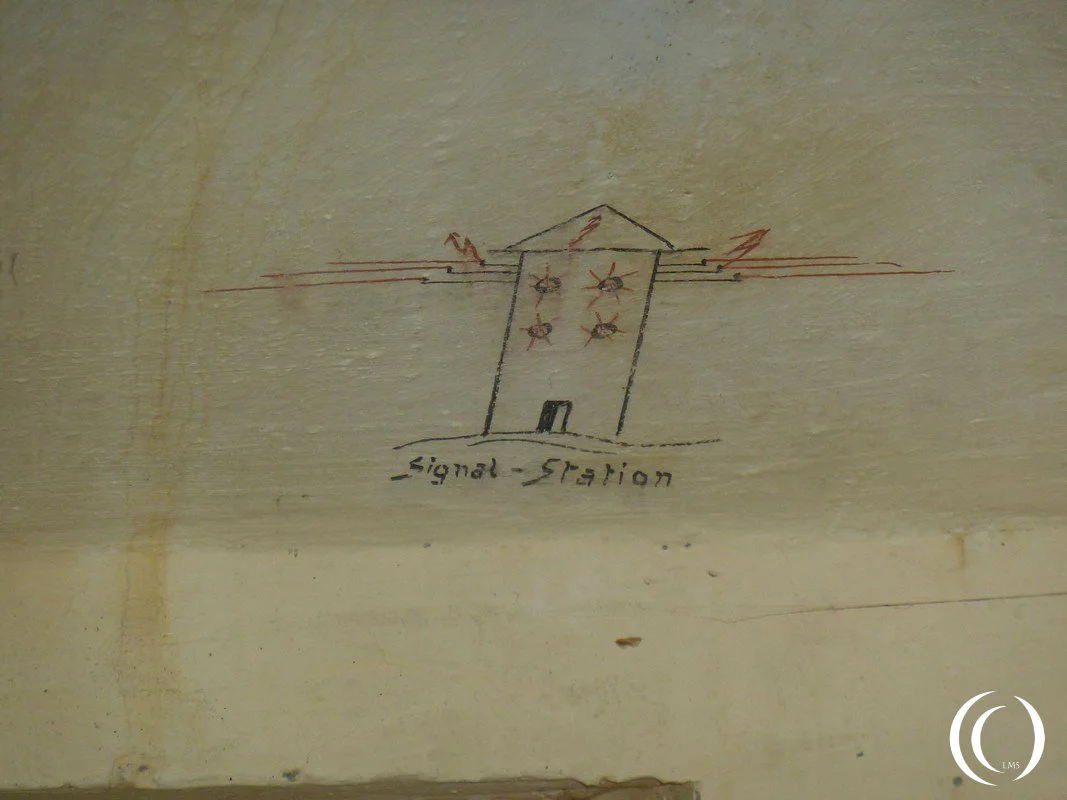
Visit
The Flak battery Nord on Fanø is a small museum, check up in advance on opening times. The paths are through dunes and on small steps inside the bunkers, not accessible to wheelchairs. Parking is free.
On the north-west side of Fano you can visit two coastal batteries, Stützpunkt H.K.B. 8./180 Vesterhavsbad and M.K.B. 2./518 Marine Küstenbatterie Gneisenau.
It is a shame that some individuals find it necessary to try and scratch off the markings on the walls. No matter if someone is bitter towards the German Forces, these buildings and everything associated with them are historic. We learn our mistakes by learning from the past.
Thanks once again for your excellent photographic and informative research, LandmarkScout stands head and shoulders above most other WW2 research sites.